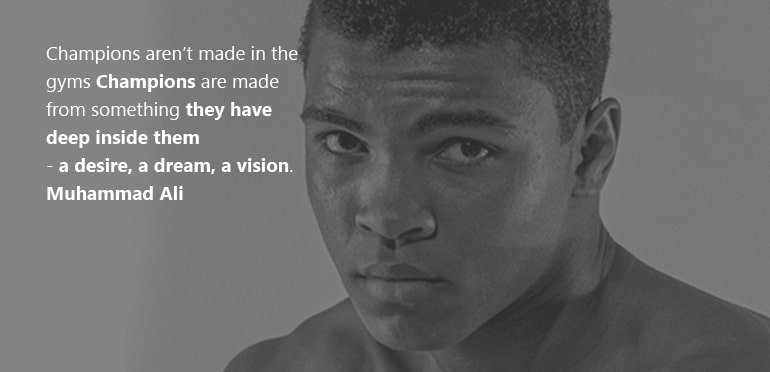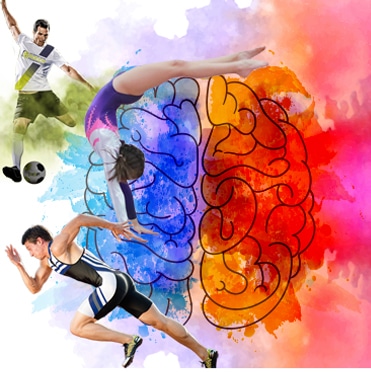
How does developing EI enhance performance?
Building emotional competencies such as self-awareness, self-confidence, resilience and focus enhances athletes’ ability to perform optimally under pressure, develops their leadership presence, and enables them to work more effectively within team environments. But perhaps a less publicised benefit of developing EQ, particularly in sport, is its potential to equip people with a skill set that supports their well-being.
EQ essentially involves two parts: first, becoming aware of how emotions in ourselves and others drive behaviours and second, developing the skills to manage these emotions intelligently, to leverage our personal strengths.
Within pressurised performance environments, emotions run high and those that are equipped to recognize, understand and manage them, ultimately are best placed to perform optimally when under pressure. Athletes who have well developed emotional skills are able to maintain confidence, demonstrate resilience in the face of adversity, and sustain laser like focus during the heat of competition.
Self-confidence is just one of the emotional skills within our 10-factor, sports specific model of emotional intelligence, but how does it work?
Self-confidence is the emotional component of an athlete’s personality and the most important factor in determining how they think, feel and behave. Emotionally intelligent athletes accept and respect themselves and essentially like the people they are. They are confident in their skills and believe in their ability to perform at high levels.
Self-confidence is built on the twin pillars of self-liking – liking and accepting who you are – and self-competence – a feeling of being on top of a situation and possessing the skills and resources to manage life’s challenges.


How can athletes build it?
Self-confidence comes from within and is fundamentally a relationship that you develop with yourself. How you feel about yourself is within your control. By altering the internal beliefs of the mind, athletes can change the outer aspects of their lives.
Replace unhelpful self-talk with a helpful, constructive narrative over time, this helps to bend internal beliefs about your ability to perform at a high level and maintain your energy levels.
Sustaining and developing self-confidence is often what separates the good from the great athletes, and the strategies above are just a few useful ways to get started. Many people within sport believe that self-confidence is some sort of innate talent that athletes either have or don’t have, but the research shows that this is not the case. With the right commitment, support from coaches and through deploying strategies such as those mentioned above, athletes can build their stocks of confidence over time.
This article has only brushed the surface of emotional intelligence and how the skills can be developed to enhance athletes’ performance. With the exciting development of our sport’s specific EQ training programme, we are now able to rigorously measure and practically build an athlete’s emotional competencies in order to improve their performance. Not only does this enhance performance under pressure, but it equips them with the skill set to deal with life’s challenges outside of sport.
Sportz Next is accredited and approved by international universities and organizations as SOL(Site-of-learning) and sports technologies as a preferred partner, which empowers EdTech to deliver quality degrees and educational content to upskill individuals or Institutions ensuring the best learning outcome and experience.











